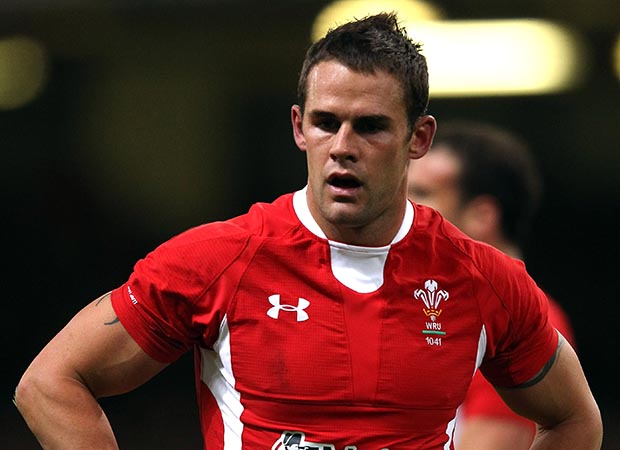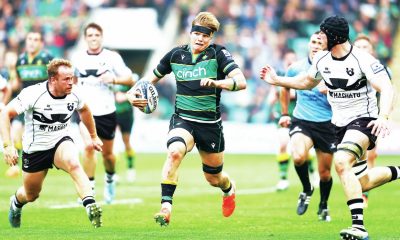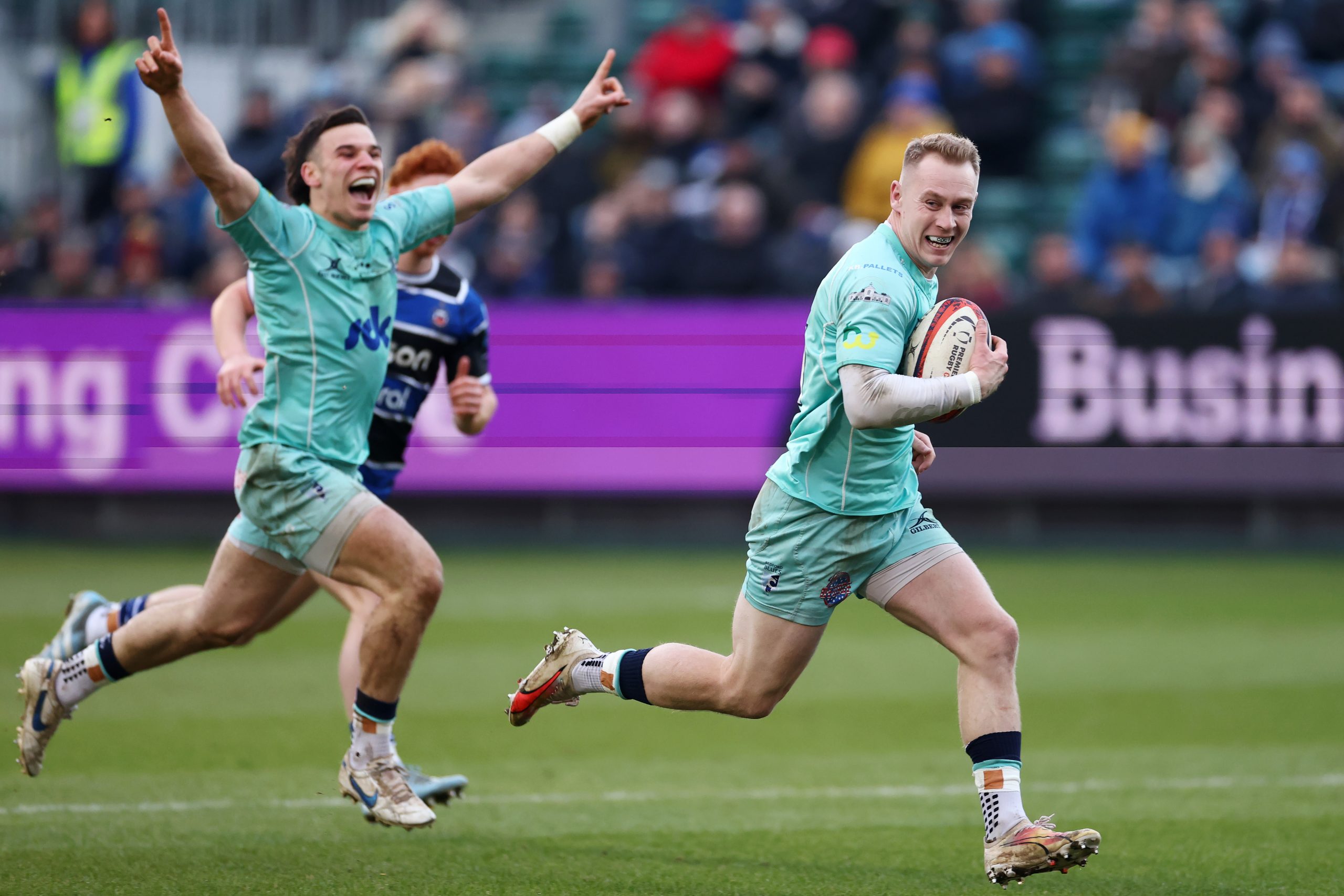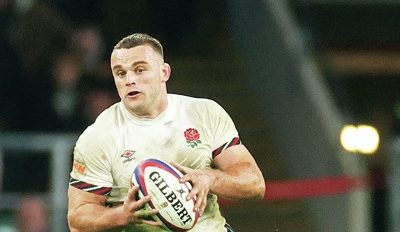 Patricio Albacete is Argentina‘s most experienced forward, and is widely regarded as one of the best locks in the game, yet he arrives at Twickenham on Saturday at the centre of a political storm. The Toulouse talisman had the temerity to question why Argentina were slipping down the rankings under the stewardship of Santiago Phelan and, at his last Press conference, the outgoing Pumas coach took a potshot at his detractors – with Albacete in the firing line.
Patricio Albacete is Argentina‘s most experienced forward, and is widely regarded as one of the best locks in the game, yet he arrives at Twickenham on Saturday at the centre of a political storm. The Toulouse talisman had the temerity to question why Argentina were slipping down the rankings under the stewardship of Santiago Phelan and, at his last Press conference, the outgoing Pumas coach took a potshot at his detractors – with Albacete in the firing line.
Phelan said last Tuesday that divisions within the Argentina squad becoming public, as opposed to being sorted within the group, were responsible for his decision to resign. This followed Argentine media reports that rival cliques – one championing Albacete and the other Juan-Martin Fernandez Lobbe, the incumbent captain – were at loggerheads, and there was little doubt in which direction Phelan’s finger was pointing.
Albacete hit back immediately, saying that Phelan’s decision had left Argentina in the lurch ahead of an autumn series which begins against England and includes further assignments against Italy and Wales.
Albacete pulled no punches: “When you quit it’s too easy to say that it is the fault of others. He should take responsibility for his decision. Nobody betrayed him. His decision leaves us in a real mess for the November Tests.”
The 55-cap second row forward knows what it is like to be part of a successful Pumas team, having been an important part of the rip-roaring 2007 World Cup campaign which saw them finish the tournament as the third best team on the planet. The decline to 10th place in the IRB world rankings over the course of Phelan’s six years as coach clearly does not sit well with a competitor like Albacete, who has raised the bar to the highest notches for Toulouse, and Argentina.
However, the public disagreement could put Albacete, 32, on a collision course with his former team-mate, Agustin Pichot, the 2007 Pumas captain. Pichot is a close friend of Phelan’s from schooldays, and since the former scrum-half retired from playing he has become the main mover and shaker in the Argentine rugby union (UAR).
As well as having extensive commercial interests – some of them rugby-related – Pichot is Argentina’s IRB representative, and not only sits on the world governing body’s executive committee, but is also chairman of the IRB’s 2016 Rio Olympic Sevens working group.
Whether Albacete, who has been in the starting line-up for 54 of his 55 Tests for his country, extends that record when Argentina’s new coach, Daniel Hourcade, names his starting 15 against England remains to be seen. In less fractious circumstances the towering Toulouse lock would be the obvious candidate to take over the captaincy from Fernandez Lobbe, who was ruled out of the autumn Tests after injuring an elbow for Toulon in their defeat by Toulouse last weekend.
If the Pumas can channel their appetite for internal conflict into external drive at Twickenham, they are capable of making life very difficult for Stuart Lancaster’s team – especially if Albacete gets the chance to make his point up front.
There are signs that having lost their status as the most renowned scrummaging power in international rugby under Phelan, the new scrum laws are seeing the Pumas re-assert themselves as a set piece force. Argentina’s last offering before facing England may have been a gruesome 54-17 home defeat by Australia in Rosario in a Rugby Championship whitewash, but before half-time they had the Wallaby scrum in serious difficulties, resulting in James Slipper being yellow-carded for persistent collapsing.
Given the subsequent fall-out surrounding Phelan, it does not require too much Sherlock Holmes sleuth work to deduce that a divided dressing room in which the coach had lost the confidence of some senior players might have contributed to the disjointed display against the Australians.
The fact that the Pumas performed creditably against New Zealand home and away (losing 28-13 in Hamilton and 33-15 in La Plata), as well as losing narrowly 14-13 to the Wallabies in Perth and 22-17 to South Africa in Mendoza, reinforces the point.
It would also be unwise to underestimate Hourcade, who has been appointed in a caretaker capacity.
He coached Argentina’s development side the Jaguars to a fourth consecutive Americas Rugby Championship title in Canada last week, but his biggest achievement was coaching an outgunned but hugely passionate Portuguese squad in the 2007 World Cup.
Although Portugal were eventually overwhelmed by Scotland and lost by a cricket score to New Zealand, the physically smaller part-timers ripped into Italy (lost 31-5) and Romania (lost 14-10) before departing after the pool stage. One of the abiding images of that tournament was of Hourcade’s team belting out the Portuguese anthem before each match with, to a man, tears streaming down their faces.
If he can engender a similar spirit in Argentina then the defeat by the Wallabies could recede rapidly, and a Pumas side which was bolting for cover could turn and strike viciously for a surprise kill. However, Hourcade was cagey, and understandably so, before his team embarked on their journey north.
“The team has been improving significantly each year, but what we lack is experience. We’re still at a disadvantage in sporting terms due to the kind of game (the top teams) play,” Hourcade told a news conference at UAR headquarters.
“We’re going to take advantage of the experience of the Rugby Championship players and give some playing time to those (younger ones) with promise – but the results will be important. This is the Pumas,” Hourcade added.
Pichot identified the tour as a great opportunity to blood new players and emphasise attack: “In the Rugby Championship you can’t improvise, but with this squad on this tour it’s an excellent moment to try out players. What made an impression on me was something Graham Henry said, that Argentina must score more tries.”
Henry, who steered New Zealand to victory in the 2011 World Cup, helped the Pumas as a consultant in their first two seasons in the Rugby Championship, but has just announced that he will not continue in the role.
Pichot said that the Argentine Rugby Union had plenty of confidence in the new coaching staff, but then revealed that they were studying the CVs of top foreign coaches with a view to signing one to help the the Pumas back into the top tier. He added, “It’s been more than a decade that we’ve had players as professionals abroad… but we don’t have much (coaching) experience in the first world of rugby.”
What Lancaster can count on is that Hourcade will be seeking at least set-piece parity, and with loosehead Marcos Ayerza having the inside track on his Leicester tighthead team-mate, Dan Cole, the scrum contest will be crucial to Argentina’s hopes of pressurising England. With Worcester’s Agustin Creevy at hooker and the formidable Montpellier No.3 Maximiliano Bustos bringing poundage and technique the Pumas will be optimistic about getting the upper hand against a Red Rose front row which could still be deprived of Alex Corbisiero.
The area of Argentina’s forward game which most requires a quick fix is the lineout, where they were swamped by the Wallabies. It is here that Albacete’s experience will count most and, having been at the heart of Toulouse’s formidable driving maul for many seasons, he knows better than anyone how to tighten the bolts.
In the back row Leicester’s latest signing, Pablo Matera, has shown power and aggression in his rookie Test season and is being touted as the next great Pumas flanker, while Juan Leguizamon and Julio Farias Cabello are hardened battlers who will be unflinching on the gain-line. The only area where Argentina could struggle because, like England, they lack an openside ferret, is in winning breakdown turnovers.
Now that Felipe Contepomi has finally retired from international rugby at the age of 36 – probably two years after his form dictated he should have done – both backlines are short of seasoned campaigners, although Argentina have a clear edge in experience.
Hourcade can call on two veterans in Bath wing Horacio Agulla (48 caps) and former Quins centre Gonazalo Tiesi (36 caps), and has seven backs with between 19 and 29 caps, ranging from strike runner Juan Imhoff to Santiago Fernandez, a play-maker who is comfortable in either the 10 or 12 shirt. On top of that he has a promising half-back combination of Martin Landajo (24 caps) and Nicolas Sanchez (14 caps) which has been forged in adversity in the Rugby Championship, as well as strong back up at scrum-half in Tomas Cubelli.
Should Hourcade’s Argentina respond to the call to go on the offensive they have another clutch of handy finishers to keep Imhoff company in the form of Lucas Amorosino and their new Sevens star, Santiago Cordero, while new Saracens acquisition Marcelo Bosch brings physical presence and guile to the mix.
Argentina might not arrive in the best mental shape because of political in-fighting, and they may be the side that Lancaster is banking on beating, but, if Hourcade asks Albacete to lead from the front, they could be a tough nut to crack.































You must be logged in to post a comment Login